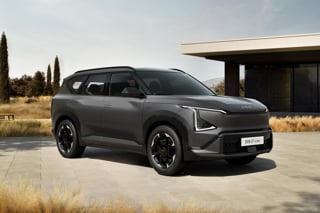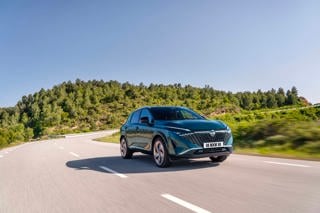A round of £91.7m funding is being split between four projects aiming to find solutions to decarbonise commercial transport and tackle electric vehicle (EV) range anxiety.
£9.7 million of the joint industry and Government funding will go towards a project led by Sprint Power in Birmingham to create ultra-fast charging batteries for electric and fuel cell hybrid vehicles that can charge in as little as 12 minutes.
Richie Frost, founder and chief executive officer (CEO) at Sprint Power, said: “As we move steadily towards the UK’s ban on new petrol and diesel combustion engine vehicles in 2030, tackling consumers’ concerns on EVs head on is critical.
“We are delighted to be leading this pioneering project that will create a step change in battery charge times, helping to create highly efficient fuel cell vehicles for the future and accelerating the charging time on battery electric vehicles significantly closer to refuelling times on today’s internal combustion engine cars.”
£41.2 million of joint funding will go to a project led by REE at its Engineering Centre of Excellence at the MIRA technology park in Nuneaton to develop and manufacture their REEcorner technology.
The technology packs critical vehicle components (including steering, braking, suspension, powertrain, and control) into a single module located between the chassis and the wheel, enabling fully flat EV platforms to meet the growing needs for efficient commercial EVs, the APC said.
BMW will receive £26.2m of the funding to help develop electric car batteries with a range similar to internal combustion engines (ICE).
Andreas Loehrke, head of research and design for BMW Motorsport UK, said: “This is a really exciting opportunity to collaborate with world leading companies to develop high tech battery technology.
“It strengthens our UK partner base and safeguards and extends our research and design centre.”
The four projects have been awarded funding through the Advanced Propulsion Centre (APC) Collaborative Research and Development competition, which supports the development of innovative low carbon automotive technology.
Together, the projects are estimated to prevent nearly 32 million tonnes CO2, equivalent to the lifetime tailpipe emissions of 1.3 million cars and will help safeguard or create over 2,700 jobs, the APC said.
It is also hoped that the investment in the technology will address motorists’ concerns about adopting EVs by cutting charge times and boosting driving range.
The remaining £14.6m will fund a project led by Cummins to develop a novel zero carbon, hydrogen-fuelled engine in Darlington to help decarbonise heavy-duty commercial transport.
Ian Constance, CEO of APC, said: “These projects tackle some really important challenges in the journey to net-zero road transport.
“They address range anxiety and cost, which can be a barrier to people making the switch to electric vehicles and they also provide potential solutions to the challenge of how we decarbonise public transport and the movement of goods.
“By investing in this innovation, we’re taking these technologies closer to the point where they are commercially viable, which will strengthen the UK’s automotive supply chain, safeguard or create jobs and reduce harmful greenhouse emissions.”
The APC collaborates with UK Government, the automotive industry and academia to accelerate the industrialisation of technologies, supporting the transition to deliver net-zero emission vehicles.


















Login to comment
Comments
No comments have been made yet.